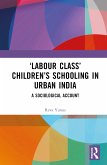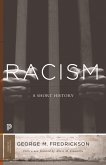This is a book about the dai, or traditional birth practitioner, and her place in the emerging therapeutic domain in colonial and contemporary India.
The book employs a caste-informed feminist reading of the colonial archive against the grain and explores papers by Englishwomen physicians, texts of indigenous medicine and practitioner accounts, administrative documents, public commentaries, and legislative assembly debates from the 19th and early 20th centuries. It also examines contemporary healthcare policy discourse. Using these methodologies, the author traces the production of the dai as an unsanitary, unskilled indigenous figure in colonial and nationalist accounts. The book goes on to examine the workings of gender and caste in the setting up of this figure, at first for containment and then for removal from institutionalized healthcare - an exercise that is more or less completed in the present. The author argues that this exercise is part of the refashioning of the indigenous, and of indigenous medicine, throughout this period, into a highly codified domain that centres caste privilege and is supported by global capital networks. In such a refashioning, the dai figure is rendered remote not only from the centre of the healthcare apparatus but also from the centre of the contemporary nation. This genealogical tracing of indigenous medicine in Indian contexts, rather than separate histories, is also useful to understand better what is termed the healthcare assemblage today, and this book provides a ground on which this can be done.
The book employs a caste-informed feminist reading of the colonial archive against the grain and explores papers by Englishwomen physicians, texts of indigenous medicine and practitioner accounts, administrative documents, public commentaries, and legislative assembly debates from the 19th and early 20th centuries. It also examines contemporary healthcare policy discourse. Using these methodologies, the author traces the production of the dai as an unsanitary, unskilled indigenous figure in colonial and nationalist accounts. The book goes on to examine the workings of gender and caste in the setting up of this figure, at first for containment and then for removal from institutionalized healthcare - an exercise that is more or less completed in the present. The author argues that this exercise is part of the refashioning of the indigenous, and of indigenous medicine, throughout this period, into a highly codified domain that centres caste privilege and is supported by global capital networks. In such a refashioning, the dai figure is rendered remote not only from the centre of the healthcare apparatus but also from the centre of the contemporary nation. This genealogical tracing of indigenous medicine in Indian contexts, rather than separate histories, is also useful to understand better what is termed the healthcare assemblage today, and this book provides a ground on which this can be done.








